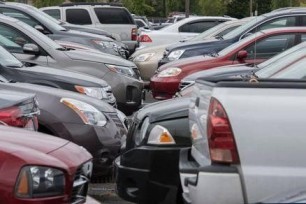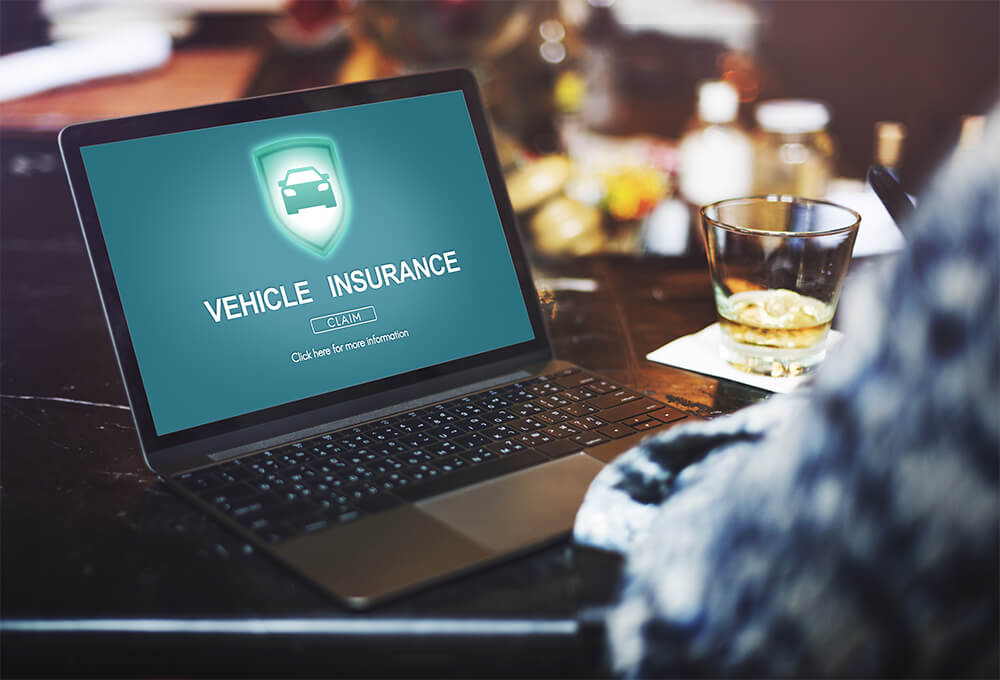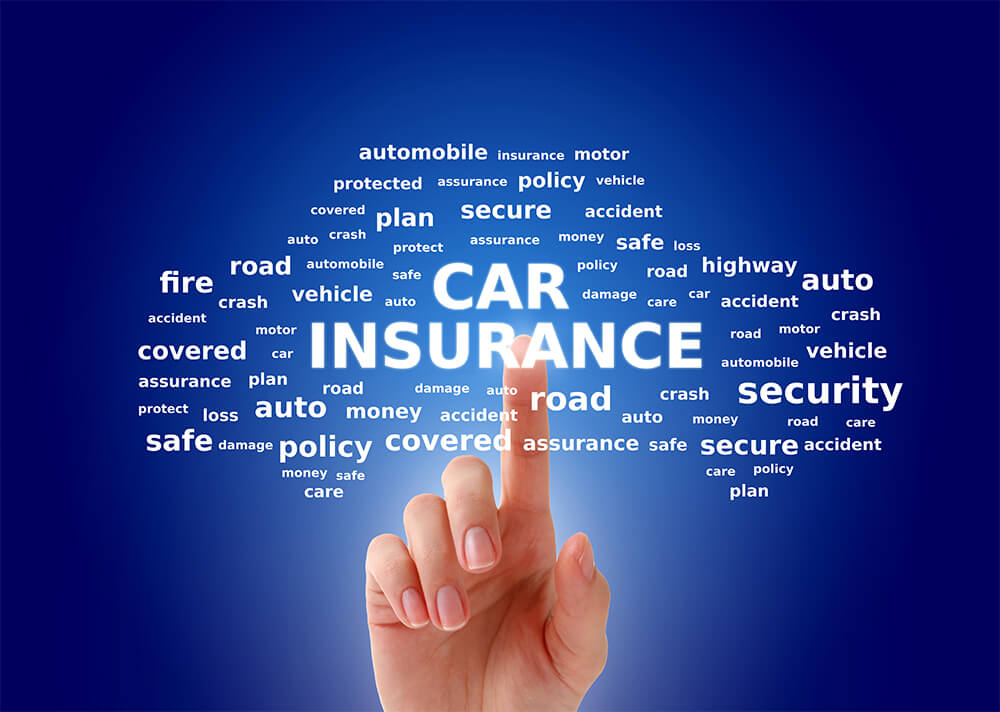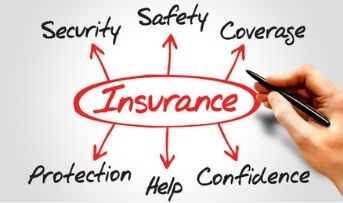General Insurance Blogs, Articles & Updates by - Magma HDI
Have us call you
- RENEW YOUR POLICY
- BUY NEW POLICY

Buying a used car? Avoid these seven mistakes
Buying a used vehicle has taken centre stage as people believe that second hand vehicles are not a bad investment. A well maintained second hand car saves you a lot of money, gives you the same satisfaction as a new car, and keeps providing quality transportation for many years at a much reduced rate.
Did you know that a new car loses 11% of its value on the way home? And significant vehicle depreciation occurs in the first few years of use. But with a used car, the bulk of depreciation has already happened!
Here is the catch; tons of pre-owned vehicles are available in the market, and narrowing down the best deals is rather complicated when you do not have enough knowledge. So, to save your time and money, here are 7 common mistakes you should avoid when buying a used car.
1. Not enough research:
Do not rely on the car dealer blindly about everything. Before you take a decision to buy a car:
• Note down your requirements
• Figure out what things are non-acceptable to you
• Decide what model and price fit best to your needs
2. Not having the test driving:
Test drive is your chance to inspect the car’s condition thoroughly. Check the engine noise, brake, clutch control, steering components, gearbox, air conditioning, and how comfortable you are when in the driving seat. It is better to ask a car expert friend to accompany you for the test drive. And do not make the mistake of taking a short test drive; this is your time to feel the vehicle and help you make the right decision.
3. Ignoring the online reviews:
They are there to help you buy a perfect vehicle. Though every business receives a few negative comments, only if there are consistently bad reviews about a dealership or a car model, think twice before buying it.
4. Not getting it checked by a mechanic:
Remember always to get a professional’s second opinion. Please do not pay for the car you are interested in unless you get your trusted mechanic to verify your choice. Otherwise, you might find many unpleasant surprises down the road.
5. Skip reading the car documents and paperwork:
Agreed, this is the most tedious part of buying a car, but diligently checking the paperwork will help you understand the whole process. You will also be aware of the perks provided by the dealer, which you can take advantage of! Also, proofreading all the documents will ensure the trust factor and the authenticity of the car and the previous owner.
6. Relying on appearance:
It is essential to understand that a car’s performance is the main factor determining its overall condition. Sure, a good-looking car will make a good impression on the people around you, but it is not hard to paint your vehicle and add a few accessories to make it look polished and new. Instead of relying on external factors and aesthetics, focus on the car’s performance to decide the value for money.
7. Not asking about the history:
Ask whether any car parts were changed, or major repair work was performed on the car. Please do not trust the dealer’s word here as they might trick you into buying a car with a bad history. It is crucial to confirm whether the vehicle was involved in an accident or holds any other concerning history.
Buying a used car means no excessive fees or tons of paperwork, plus the lower car insurance renewal. And you still get to buy a certified and thoroughly inspected vehicle. Also, along with your RC documents, ensure that the dealer transfers the insurance in your name too by checking the car insurance renewal status.
Buying pre-owned cars is not a luxury asset, instead an opportunistic investment done for fulfilling dreams. So go for the best deal for your driving experience!
Are you buying a used car? HERE is everything you need to know about car insurance?
Disclaimer: The information provided above is for illustrative purposes only. To get more details, please refer to policy wordings and prospectus before purchasing a policy.

What are the frequently asked questions about motor insurance?
Getting motor insurance regardless of the fact that whether it is new or old, is always confusing. Technical jargons, guarantee amount, clauses, picking motor insurance company, etc. are some things which everybody does not understand, and it leads them to make wrong decisions. They all look lucrative from afar, but which is the right one.
Hence, here we have compiled a list of frequently asked questions that will help you in getting the right motor insurance for you.
Question: What does a motor insurance cover?
Motor insurance covers you against any financial burden due to damage of your insured vehicle.
Question: Does the motor insurance offer different coverage types?
Yes, different types of insurance coverage types are available such as bodily liability, comprehensive, property damage liability and uninsured and underinsured and collision. You can choose the insurance coverage type as per your needs and requirements.
Question: Is buying motor insurance mandatory?
Yes, it is mandatory to buy motor insurance though the laws of carrying insurance vary from state to state. It is recommended you visit the online website of the government transportation of your state to make sure that you got the right motor insurance.
Question: Is a motor insurance expensive?
Yes, motor insurance is relatively expensive. Though you should also consider the credit report and driving the history of your vehicle while buying insurance.
Question: What happens if I forget to pay the premium fee for my insurance policy?
You will get a warning notice from the motor insurance company. But if you forget paying a premium fee over and over again, they can either issue late charges or will cancel your policy. So, it is recommended to pay your premium fee on time.
Question: Can I change the motor insurance coverage if I want to change it?
Yes, if you want to change the motor insurance coverage then you can, but you might need to pay a cancellation fee. But if you wait till the policy maturity then you can change the coverage without extra fee.
Question: How can I get a discount on motor insurance?
Discounts are quite common when it comes to motor insurance. Different motor insurance companies offer different deals and discounts on motor insurance so you can choose the right one as per your needs and requirements.
Question: Can my gender affect the amount of the premium fee?
Yes, gender affects the premium rates of motor insurance. According to the statistics, male drivers are generally involved in more accidents. Therefore, companies offer motor insurance at a higher premium fee to males as compared to females.
Question: Can I get motor insurance even if my vehicle is more than 20 years old?
It depends upon the shape and condition of the vehicle you have. If your vehicle is not in a condition to get coverage, then it is not recommended you to get higher coverage and it does not make sense to spend a higher amount onto it.
Question: What is No Claim Bonus?
It is a discount after a claim-free year or an incentive for driving safe and avoiding accidents.
Question: What are the documents that are required to be submitted for a Motor Insurance claim?
Required documents differ from company to company but some of the most important document that would be required are: Claim form, registration copy of the vehicle, an estimate of the loss, original repair invoice and payment receipt.

Buy the best car Insurance with this Guide
Buying a car is no more a family dream as people are investing in a car in their early careers. With the increase in pollution and traffic in most of the metro cities, ditching your two-wheeler for a car would seem a better idea for a comfortable ride to the office.
We get all excited while planning to buy a new car and would end up visiting various car showrooms to extract the best bid in our budget. However, when it comes to purchasing insurance for the Car, we would hardly care to see what it actually covers and prefer policies with minimum premium.
Purchasing the correct vehicle insurance is although little tricky, we present a primary point-agenda to buy the best vehicle protection with the best car insurance price in india to make your life simpler.
What should a comprehensive car insurance plan cover?
1. Any damage to the Car due to Natural disasters:
Since natural calamities are not in our control, anything such as earthquake, storm, cyclone, landslide, Tsunami, etc. must be covered in your plan.
2. Any damage Due to Man-Made disasters:
Any damage caused due to a terrorist attack, a riot, strike and during the transportation of your Car should also be compensated by your insurance plan.
3. Personal Accident Cover:
It's imperative that your Car insurance also provides for you and your family in case of an unfortunate accident resulting in partial or full disability and even death. Under a comprehensive policy you
4. Third-Party Legal Liability:
If a third party suffers any damages during the accidents or a surrounding property gets damaged, this cover protects you against the legal liability.
What is not covered under a Motor Insurance NOT cover?
- Driving the car under the influence of alcohol or drugs.
- Intentional loss and damage to the vehicle.
- If someone else is driving your car and it is damaged while being driven by that person.
- Driving without a license.
- Damage caused due to war, mutiny, invasion by the enemy, nuclear risk.
- Any mechanical or electrical breakdown of the Car due to Driver's mistake or because of the condition of the vehicle.
Always pick a top-rated agency
If it's cheap, it's compromised, hence don't get attracted by any plan that assures a full coverage under a low premium fee. In case of an emergency, the priority is getting your claim as early as possible. Go for a reputed company in the market that provides fast claim settlements along with great customer service.
Key factors to consider before purchasing Car insurance:
- Allowance for the commute - If your Car is under repair, make sure your plan includes an allowance for the daily commute by your insurer.
- Cover for lost car keys - If you lost your car keys or someone has broken into the lock system, you will get cover for replacing the lock.
- Cover for hotel stay - Suppose your Car has become immobile after involving in an accident and you need to stay nearby while it is being repaired, your plan must bear the expenses of your stay in a hotel.
- No Claim Bonus - If you haven't filed a claim during the period of your policy, you can apply for a no-claim bonus. Also, if you make only one claim, you still get to keep your NCB.
- Repair of glass, rubber, plastic and fibre parts - If such parts of the car are damaged, you can get them repaired, and this does not affect your No Claim Bonus.
- Lost Personal Belongings and Baggage Cover - If your Car doesn't have an anti-theft device that is approved by the Automobile Research Association of India, the insurance company gives you cover for the lost personal belongings.
Bottom line!
While you spend so much time researching the latest model, the jazziest colours, the snazziest of safety features, also choose the best car insurance policy in India that offers you higher protection against.

Car Insurance Policy status checks simplified
Thanks to higher disposal incomes and many attractive car loans available in the market, owning a car in India is no more a luxury. You spend a good amount of money to select a model, accessories, and safety measures like gear lock and central locking for your proud possession. But, have you ever given a thought about why your car requires a valid car insurance policy? As driving in India has its own perils, the Motor Act, 1988 made it mandatory for all car owners to possess a valid car insurance policy.
The car insurance policy not only indemnifies you in the event of an accident, damage, theft, or loss affecting your car but also offers protection in case of third-party liability. Instead of treating your car insurance policy as an expense, you must consider it as a protection.
Here are some of the most noteworthy key points that will help you to understand the benefits of having car insurance.
- Monetary benefits of a comprehensive car insurance
One of the key benefits of a car insurance policy is the reimbursement in the form of financial benefits if the car meets with an accident or gets stolen.
- Cashless repair facility
The benefit of cashless repair facility can be availed when an accident-related repair is completed in a network garage. Protection against losses caused due to natural calamities like earthquakes and fire.
- Protection against third-party liability and legal cases.
A good car insurance policy provides you protection caused to a third-party, like injuries, damage to another vehicle, or death while using your vehicle.
How to select a recognized car insurance firm?
It is essential for you to know if the insurance company is registered with the Insurance Regulatory and Development Authority (IRDA). Before you plan to buy car insurance online from an insurer, validate that the company is featured in the IRDA list of authorized insurance companies.
How to check your car insurance status online?
Once you have purchased a car insurance policy, it is advisable to keep your Car Insurance details handy at all times which might be required at the time of filing an insurance claim.
If you are unsure about the status of your car insurance policy, then you can check it on the official website of the Insurance Information Bureau (IIB), which has been created by the IRDA (Insurance Regulatory and Development Authority).
When you are performing the car insurance policy status, check on the IIB website, you must take care of the following points:
- In case the car insurance policy has been issued recently, the details will not be available online.
- While entering the car number, do not use spaces or any special characters.
- Please note that data is available only for those policies, which have been issued after March 2010.
- This option can be utilized for a maximum of 3 times by using your mobile number or email id.
With the car insurance status checks been made simple, it is easier for you to keep track of your car insurance policy. Make sure that you renew your car insurance policy before the expiry date of the present policy to enjoy continued protection against damages.
These essential Car Insurance tips will help you file a claim with your insurer and get it approved without any hassles. You can also buy or renew your Car Insurance online instantly as per your preference.

Car insurance premium is influenced by these factors
Having a car insured takes many brainstorming sessions in which you have to consider several factors. The premiums paid towards a car insurance policy can be a wrecking ball to your hard-earned money. The requirement for purchasing a suitable policy is something that can't be overlooked. An ideal approach to manage this undesirable circumstance is to know about significant components that influence the vehicle insurance premium. The adequate knowledge of these determinants will enable you to have decent policy terms from the best car insurance company in india with the same advantages and deductibles. Here are some of the factors that directly affect the premium rates,
- Type of Car – Undoubtedly, the subject of your insurance that is your car determines your premium rates and is one of the significant factors considered under the premium bar as some of the vehicles are either stolen; lack specific safety measures or incur more repair costs.
- Driving Habits of the Driver – If you have a record of bad driving, accidents or too many traffic fines under your belt then the insurance companies may refuse to give insurance or charge the high cost of the policy as they strictly adjudge that another accident is prone to happen soon. However, if you make sincere efforts to drive safely, your record may lose value over time, and your insurance premiums can be more manageable for you.
- Demographic Factors – Things like your age, profession, geographical location have quite a weight on your insurance premium allocation. For instance, if you live in densely populated regions, then you are more prone to collisions, thefts or injuries hence higher the premium. Whereas, if you live nearly in a hamlet, then your premium may descend accordingly. Similarly, take age or gender; for example, if you are young and reckless, you may have to shell higher premium amounts. In some cases, women tend to pay lesser premium than man. No reason, just giving an edge to gender parity and all.
- Customized Car Insurance Policy- Another primary reason for increment and decrement of insurance premiums. A well-customized car plan that completes the necessities of your desired car may cost you high premium rates. Many insurance firms offer well-tailored policy plans that would prove beneficial to the insured on a personal basis.
- Car coverage and choice of deductibles - Insurance premiums may vary depending upon the type of coverage the insured chooses for their car. Types of coverage depend upon the state of the car; they could be collision, liability, comprehensive, personal injury protection coverage, etc. A deductible is an amount you pay before your policy period to pay for an uncovered loss, setting high deductibles indicates less money to pay in policy.
In the end, one must ensure that paying for car insurance is an essential part of owning a car. Hence, try to come with a pivotal decision that would lower your premium at any cost.

Choosing the right health insurance for our family
Health problems can occur suddenly and without preamble, and it can often mess up your financial planning with unexpected expenses. It has made health insurance important for every family to help decrease any unplanned financial burden. Though most of the companies provide their employees with health insurance coverage, it is not sufficient and can also exclude many ailments. Emergencies do not see our feasibility; hence, a reckless attitude towards health could put you in financial risk. Also, if we are paying for a thing, we tend to be very careful about the benefits we would be receiving.
However, it is not just about taking a health insurance plan; instead, it is about choosing the right health plan for your family to get the maximum benefits at the time of emergency. It is essential that you understand various factors that will help you choose the right health insurance policy . Here are a few essential things you should know while deciding to buy a health insurance plan.
What kind of health plan suits you?
Health insurance plans can be indemnity plans and defined benefit plans. The defined benefit plan pays a lump sum amount for treatment without going into the detailed breakup of hospital expenses. On the other hand, an indemnity plan reimburses the hospital expenses. It is recommended that your health insurance portfolio should have indemnity plans and additional critical illness plans which are defined benefit plans.
Which indemnity cover suits you: Individual health insurance or family floater?
If you want extensive coverage, individual health insurance is the option. In this type, you will buy separate plans for each member of the family, and premium for each policy will be based on the age, and respective sum assured. However, if you are a family person, it is recommended that you buy a family floater (FF) plan to cover your whole family. Then you will not need to buy separate policies for each family member. The premium for family floater plans is also less than individual plans, and there is a higher sum assured. The most important factor is that anyone can use the amount for medical treatment. Also, it is possible to cover parents if they are senior citizens with a slightly higher premium.
Other important considerations while choosing health insurance for your family:
- Select the sum insured based on your age and marital status, because the risk is less when you are younger, and it climbs as you grow older.
- Select a plan that has a minimum waiting period for pre-existing health conditions.
- Select a plan that allows you to renew at 75 or 80 years of age.
- Consider the range of hospitals that the insurer is affiliated with.
- Compare premiums and plans from more than one insurer and remember to read the customer reviews.
- Read between the lines to understand the exclusions.
Insurance does not guarantee good health, but it will help you in taking care of your loved ones the best way possible during health emergencies.

Are long charging hours stopping you from buying an EV? Battery swapping is a game-changer
As the world revolutionises and turns towards more eco-friendly options, the emergence of Electric Vehicles, or EVs, has also come to the limelight. They are not only cost-effective but a good eco-friendly riding option. They help in the reduction of harmful gases in the atmosphere. It keeps the balance of the environment intact. This, in turn, helps maintain the balance of global warming. The Indian Government has also prioritised shifting all vehicles plying on Indian roads to electric vehicles or EVs by 2030.
To make this possible, a lot of steps have been taken. The government wants to make EVs affordable, usable, and accessible to all. Are long charging hours stopping you from buying an EV? Batteries make up 40-50% of the cost of every EV right now. Additionally, battery charging can also take long hours. Hence, battery swapping was established as a plausible solution.
The battery-swapping policy was introduced in the 2022-23 budget. Let's find out more about it.
What is the new policy of the Indian Government?
The Indian Government has released a new policy focusing on two and three wheeler vehicles with electric-powered engines. The main purpose behind the policy introduced by NITI Ayog focuses on swapping the batteries instead of charging them. It is not only cost-effective but also ensures good time management.
How is swapping batteries better than charging?
There are a variety of merits that you can derive by swapping the batteries instead of charging them. These are
● Time management:
It is a known fact that charging batteries can be an extremely tedious process. It takes approximately an hour or more to charge a battery completely, which can be a waste of time if you are in a hurry. Instead, if you swap the battery, it will only take you a few minutes. It is because the batteries will already be charged.
● Space management:
The chargers that are present at the charging stations are furiously slow. Moreover, they can only charge one vehicle at a time. Instead, if you swap the batteries with a pre-charged one, you need not wait for your turn to charge. All the discharged batteries can also be charged once and used when ready.
● Cost-effective: Batteries can be costly, which limits the consumers to buy an EV. With the swapping of batteries, the batteries will be available on a subscription basis. This was done to make batteries and EVs affordable to all.
● Less anxiety:
One major issue with EVs is running out of charge before the destination. If the battery swapping stations are set up successfully, this will not be an issue anymore. You can easily swap the batteries in minutes and go to your destination without hassles.
These are some clear pointers on why battery swapping is a game-changer for EVs. The Government is trying its best to establish EVs as the future of India. We should also do our share in making the world free from pollution and carbon emissions. With methods like battery swapping, EVs can be more accessible and affordable. Make sure to buy car insurance policy online to keep your EV safe and sound. Contact your insurance provider to understand the terms and conditions better while covering an EV.
Click HERE to buy car insurance policy online for your EV.
Disclaimer: The information provided above is for illustrative purposes only. To get more details, please refer to policy wordings and prospectus before purchasing a policy.

How to spot the clear signs of a good insurance agency
When purchasing insurance, people check the plan's conditions, coverage, and exclusions. A good insurance agency offers the best plans and benefits to its customers. But do you know how to identify an excellent general insurance company? If you want insurance for your home, business, or automobile, you must determine the best insurance agency for your requirements.
Here are some clear signs that help you choose a good insurance company.
1. Problem-solving:
A good insurance company can come up with creative solutions to your problems. You should ensure that the agency helps its clients with the right insurance plan according to their needs. If you get the right solutions, the insurance company is rated outstanding.
2. Genuine:
You should know that unethical insurance agents only stay in business for a short time. You can check the experience and reviews of old customers of an insurance company to determine whether they are transparent & genuine.
3. Ease of doing business:
If you can easily access an insurance company's product, you can put them in the category of a good insurance company. Some other factors that make the interaction between clients and insurance agents more seamless include online claim reporting, online bill pay, billing questions, policy changes, 24x7 customer service, and social media platforms.
4. Vast technical knowledge:
An excellent general insurance company knows how to sell its policy and win its customers' trust. You should expect that your insurance agency can instantly answer all your insurance, law, and tax queries. They must know income tax preparation, financial planning, and some other avenues of financial service to help their clients with their financial situations.
5. Customers delight:
You will feel encouraged to buy their product when you meet an agent or a team from a good general agency. Most good insurance agents are eager and excited, which makes it interesting and easier for clients to understand the details of their products.
6. Emotional intelligence:
If your insurance agency listens and empathises with clients, they can help you clear up your financial situation when you encounter a loss due to an accident. A good insurance agent is sensitive and able to understand the needs of their clients.
7. Good customer service:
Customer service doesn't mean being available at all times, but it should also solve your problems and satisfactorily answer your questions. Check whether the customer care team timely responds to their client's inquiries via phone, chat, or video calls. You may also go through the company's online reviews to get a clearer picture of their customer service.
8. A wide array of products:
If your agency offers comprehensive products and services that meet your specific needs, you can call them a good insurance company. You should check that they offer a wide assortment of general insurance, including motor, health, home, travel, commercial, and more. You should also look for optional features in the general insurance plan and decide on its requirements to get comprehensive coverage.
9. Sense of urgency:
A good agency has robust SOPs and processes for quick insurance approval. Consider the agency's time to explain its products and services, the application process, and other factors. You should check how fast your insurance agency can provide the claim money when needed.
Look for these signs in your general insurance company and decide whether they are the best agency for you. Choose the right insurance company that offers a wide array of general insurance products. You can benefit from the insurance plan if you encounter a loss or damage to your life, vehicle, home, or business.
Click HERE to know more about the best general insurance company in India.
Disclaimer: The information provided above is for illustrative purposes only. To get more details, please refer to policy wordings and prospectus before purchasing a policy.


